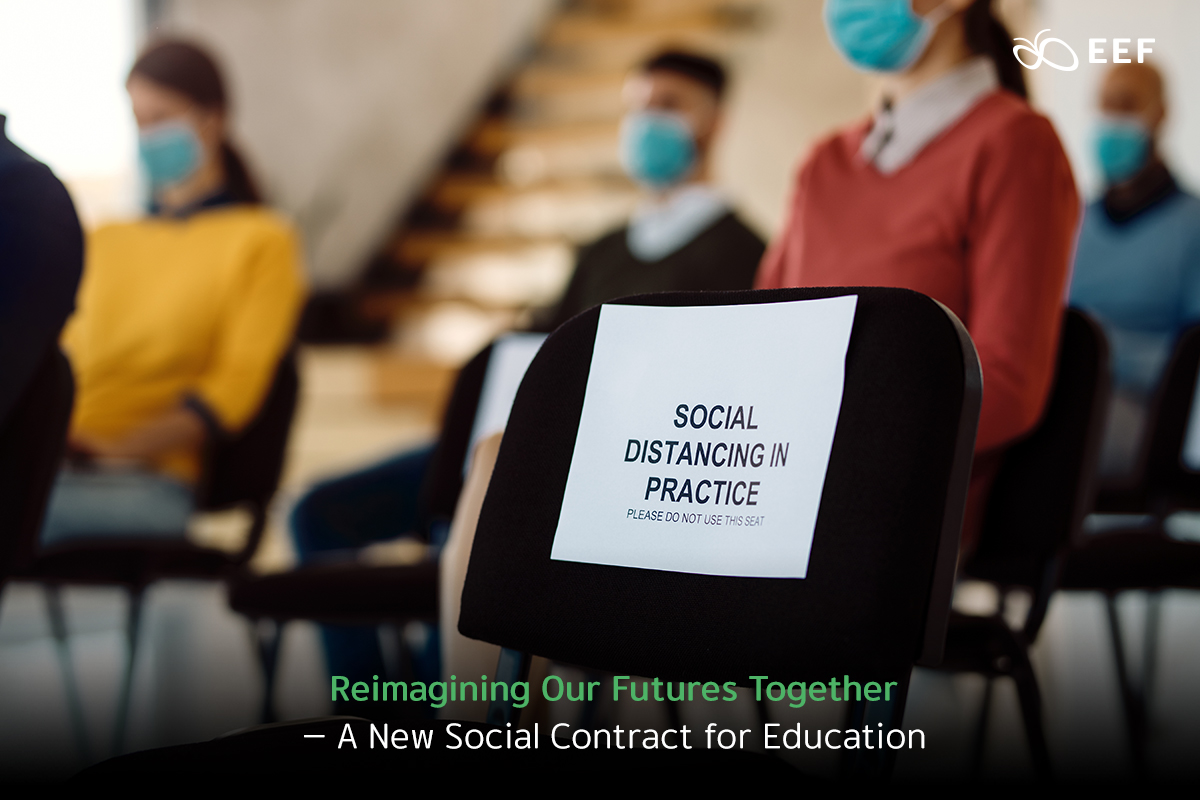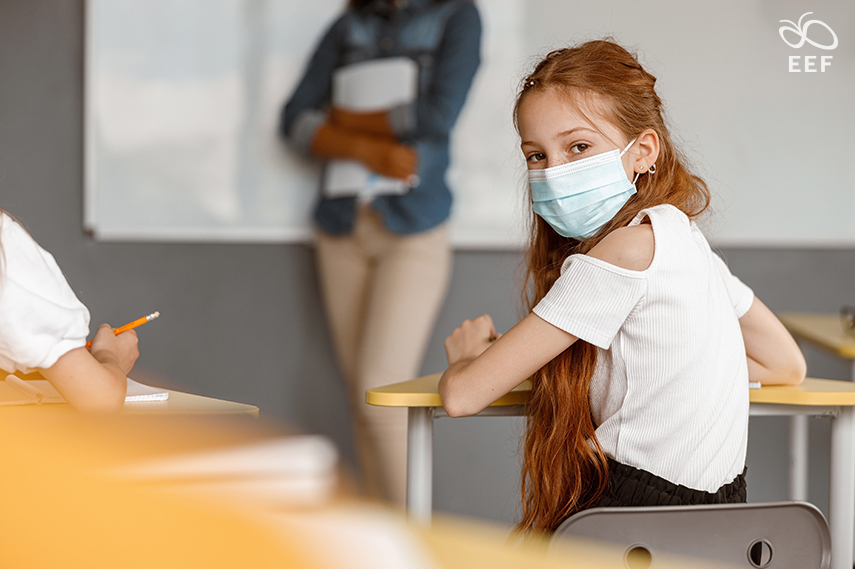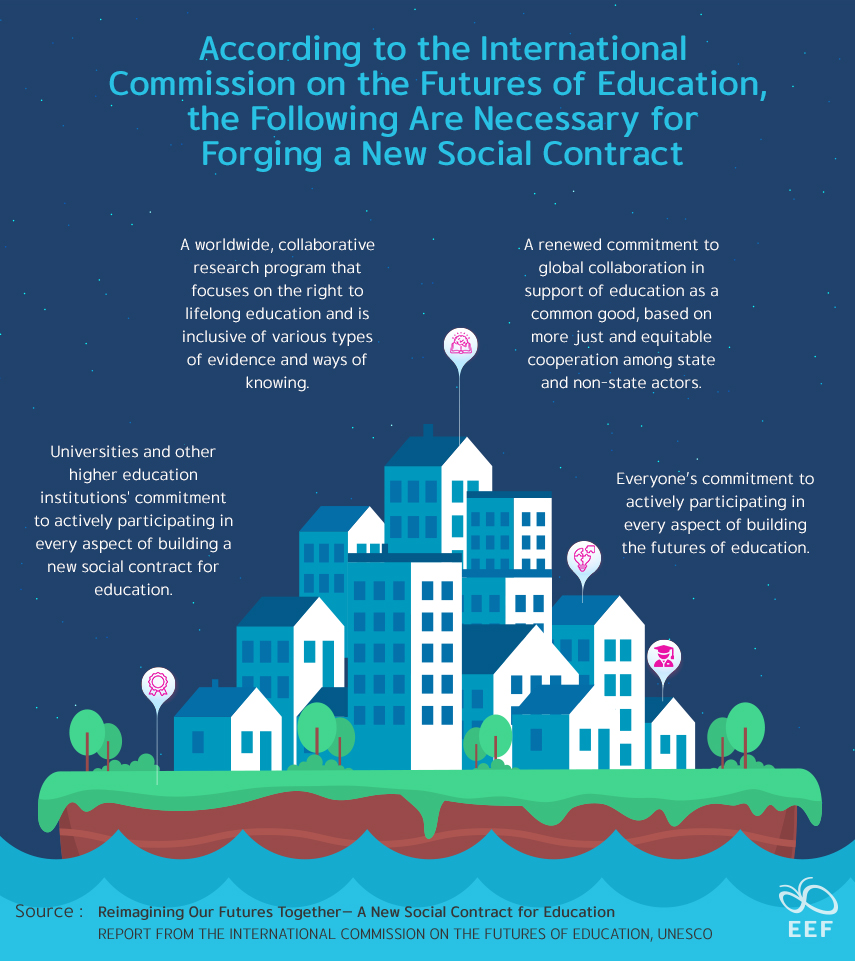
Humanity and the planet are under threat. In our quest for growth and development, we have overwhelmed our natural environment, endangering our existence. And it was not until the COVID-19 pandemic that humanity and the planet’s interconnected fragility was driven home loud and clear. Many overlapping crises and challenges — like climate change, disruptive technological automation, widening disparities, and democratic backsliding — not only harm much of life on Earth but also constrain our individual and collective human rights. Urgent collective action is needed to alter our course of action and reimagine our future.
Although it has already been established that education is the foundation for transformation, global disparities shed light on the fact that education, as it is today, is not yet fulfilling its promise to help us shape peaceful, just, and sustainable futures. And we have ended up facing a dual challenge of making good on the unfulfilled promise to guarantee every child, youth, and adult the right to quality education and fully realizing education’s transformative potential as a route for sustainable collective futures.
With that being said, it is fortunate that many people — children, youth, and adults alike — are already keenly aware of our interconnectedness on this shared planet and the significance of our working together towards shared futures. And the prerequisite to shaping those futures is that education itself must be transformed.

In the 20th century, public education primarily supported national citizenship and development initiatives through the form of compulsory schooling for children and youth. Today, however, as the future of humanity and the planet is in grave danger, we urgently need to reimagine education to support us in addressing common challenges and work together to create shared and interdependent futures that are peaceful, just, and sustainable.
From the aforementioned, education can be seen in terms of a social contract, an implicit agreement among members of a society to cooperate for a shared benefit. In this instance, they work together towards a shared vision of the public purposes of education as a public endeavor and a common good that can address injustices while reshaping futures. Therefore, it must build on the broad principles that underpin the human rights of all, regardless of race, ethnicity, religion, disability, sexual orientation, age, or citizenship status, as well as must be governed by the foundational principles of assuring the right to quality education throughout life and strengthening education as such. Here are proposals for renewing education:
International Commission on the Futures of Education’s Proposals for Renewing Education
- Pedagogy should be organized around the principles of cooperation, collaboration, and solidarity.
- Curricula should put an emphasis on ecological, intercultural, and interdisciplinary learning that assists students in accessing and producing knowledge while also developing their capacity to critique and apply it.
- Teaching should be further professionalized as a collaborative endeavor where teachers are recognized for their work as knowledge producers and key figures in educational and social transformation.
- Schools should be protected educational sites for inclusion, equity and individual and collective well-being, and reimagined to better support the transformation of the world toward more just, equitable, and sustainable futures.
- We should enjoy and expand the educational opportunities that take place throughout life and in different cultural and social spaces.
Source: Reimagining Our Futures Together— A New Social Contract for Education
REPORT FROM THE INTERNATIONAL COMMISSION ON THE FUTURES OF EDUCATION, UNESCO

Building on what education has allowed humanity to accomplish thus far, these principles help to ensure that, as we progress toward 2050 and beyond, a new social contract for education allows us to think differently about learning and the relationships between students, teachers, knowledge, and the world. It is done so that education can truly empower future generations to reimagine their futures and renew their worlds.
Through millions of individual and collective acts, we will build a new social contract for education, one that overcomes disparities. And it must unite and rally us around collective endeavors, providing the knowledge and innovation needed to shape peaceful, just, and sustainable futures for all that are anchored in social, economic, and environmental justice. And for that to be possible, it takes a massive commitment to thinking and acting together. The following are necessary for forging a new social contract:
According to the International Commission on the Futures of Education,
the Following Are Necessary for Forging a New Social Contract
- A worldwide, collaborative research program that focuses on the right to lifelong education and is inclusive of various types of evidence and ways of knowing.
- A renewed commitment to global collaboration in support of education as a common good, based on more just and equitable cooperation among state and non-state actors.
- Universities and other higher education institutions’ commitment to actively participating in every aspect of building a new social contract for education.
- Everyone’s commitment to actively participating in every aspect of building the future of education.
Source: Reimagining Our Futures Together— A New Social Contract for Education
REPORT FROM THE INTERNATIONAL COMMISSION ON THE FUTURES OF EDUCATION, UNESCO

Original Source: https://drive.google.com/file/d/1Asv5NLYPjYymf4tYK-z2pfihXqs6VLWz/view

